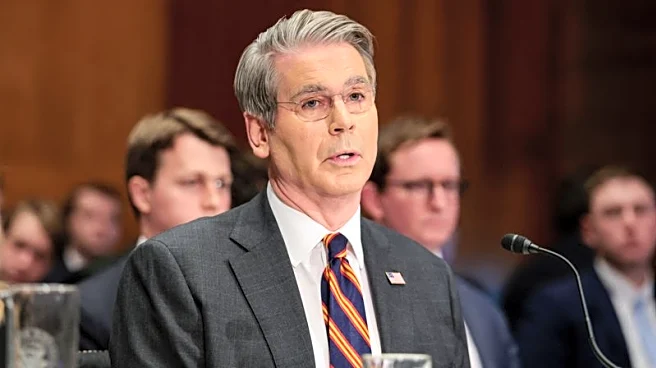What's Happening?
Alyssa Allen, Uber Technologies Inc.'s associate general counsel for global labor and employment, is playing a pivotal role in managing the legal complexities faced by the ride-share giant. Since joining
Uber in 2019, Allen has been instrumental in addressing issues related to labor classification, regulatory compliance, and legal challenges stemming from Uber's operations across 70 countries. Her approach emphasizes being a facilitator rather than a blocker, aiming to integrate legal strategies with business objectives. Allen's background in litigation has equipped her to handle emergencies and adapt to evolving legal landscapes, including those influenced by the Trump administration's policies on immigration and diversity, equity, and inclusion (DEI).
Why It's Important?
Allen's role is crucial as Uber navigates a period of significant legal scrutiny and policy shifts. The company's classification of drivers as independent contractors has been a contentious issue, with implications for labor rights and regulatory compliance. Additionally, the Trump administration's focus on immigration and DEI policies presents challenges for Uber, which relies on a diverse workforce and global talent acquisition through programs like H-1B visas. Allen's ability to manage these complexities and communicate effectively with stakeholders is vital for Uber's continued operation and strategic growth in a competitive and regulated environment.
What's Next?
As Uber continues to expand and innovate, Allen will likely face ongoing legal challenges related to labor laws, regulatory compliance, and international operations. The company's efforts to lower rider costs, harness AI, and advance sustainability goals will require careful legal navigation to avoid potential pitfalls. Allen's proactive approach to legal strategy and her ability to adapt to policy changes will be essential in steering Uber through these challenges while maintaining compliance and supporting business objectives.
Beyond the Headlines
Allen's work at Uber highlights broader issues in the gig economy, including the balance between innovation and regulation. Her role underscores the importance of legal expertise in navigating complex business environments, particularly in industries undergoing rapid transformation. The ethical and legal dimensions of labor classification, immigration policies, and DEI initiatives are critical areas that will continue to shape the future of companies like Uber and the broader gig economy.











